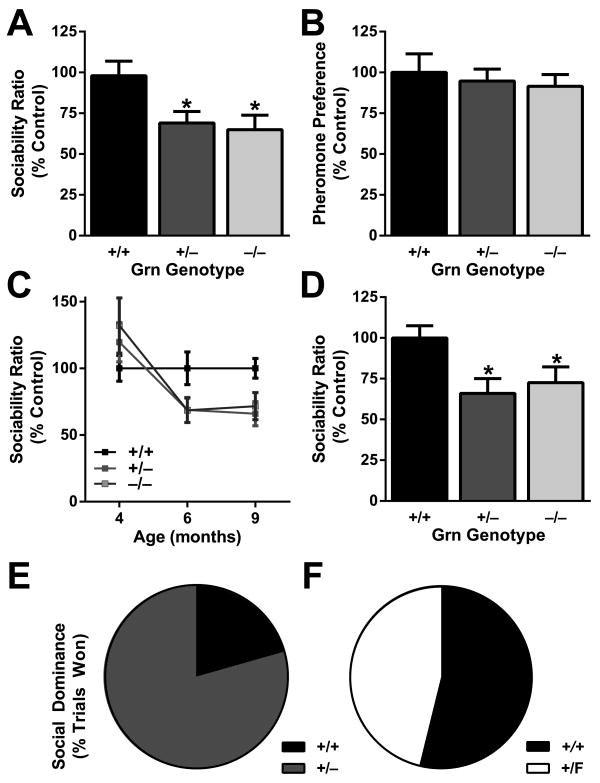Fig. 2.
Progranulin haploinsufficiency causes social deficits. A,C,D, Three-chamber sociability test, with sociability ratio (time spent investigating another mouse divided by time spent investigating an inanimate object) expressed as percent of control. A, On a mixed background at 6–7 months, Grn+/− mice and Grn−/− mice had lower sociability than Grn+/+ mice (ANOVA, p < 0.01; * p < 0.05 by Dunnett's post-hoc test; N = 51–58 mice per genotype). B, No deficit in pheromone preference was observed in progranulin-deficient mice (N = 17 mice per genotype; mixed background at 7–8 months). C, A cohort of mice on a congenic C57BL/6 background was tested longitudinally at mean ages of 4, 6, and 9 months. There were no sociability deficits at 4 months, but reduced sociability was apparent at older ages (age × Grn interaction, p < 0.05; N = 17–19 mice per genotype). D, On a congenic C57BL/6 background at 9–12 months, Grn+/− mice and Grn−/− mice had lower sociability than Grn+/+ mice (ANOVA, p < 0.05; * p < 0.05 by Dunnett's post-hoc test; N = 17–21 mice per genotype). E, F, Social interactions were further tested with the tube test of social dominance at 4–6 months old. E,Grn+/− mice won 79% (27/34) of trials against Grn+/+ mice (exact p = 0.0008). F,Grn+/F controls, which have normal progranulin levels, won 46% (6/13) of trials against Grn+/+ mice, no different from chance. Male and female mice were used for both social tests. No sex-dependent effects were observed so the data from males and females were combined.

